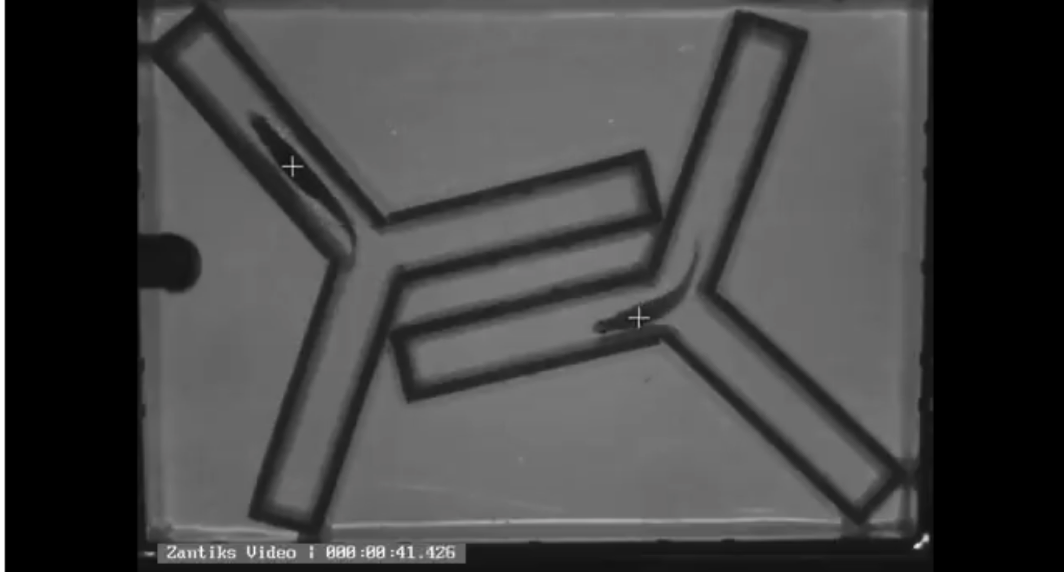Behavioural analysis of zebrafish models of Alzheimer's Disease

We’re undertaking behavioural analysis of zebrafish models in order to help find treatments for Alzheimer's Disease.
We’re undertaking behavioural analysis of zebrafish models in order to help find treatments for Alzheimer's Disease.
Alzheimer's disease is the major form of dementia but its cause is still largely a mystery. However, there are inherited forms of Alzheimer's disease that occur early (before 65 years of age) and are caused by mutations in only a small number of genes.
By analysing the functions of these genes, we can gain insight into the mechanisms underlying the disease
We have created the world’s first zebrafish models of mutations that, in humans, cause inherited, early onset forms of Alzheimer’s disease. But do our zebrafish models suffer from dementia like humans? One way to test this is to look at their behaviour.
Our laboratory hosts sophisticated equipment for monitoring the behaviour of tiny zebrafish “larvae” and we have been chosen as the Australian test site for new Zantiks equipment for monitoring the behaviour of adult zebrafish.
One behavioural test that has very low impact on the animals but should be able to reveal Alzheimer’s disease-like changes in brain function is a zebrafish-compatible version of the “Y-maze”. Fish in the Y-maze swim back and forth in the arms of the “Y” and, each time they come to the centre, they must make a choice of which arm to investigate next. If they cannot remember where they were recently (i.e. they have poor “spatial working memory”), their choice of whether to go left or right at the centre of the “Y” becomes uneven.
We have a number of different Alzheimer’s disease-like mutation models and we have families of these fish at different ages. Fish can also be exposed to drugs or to conditions such as low oxygen (hypoxia) to see how this affects their spatial working memory in the Y-maze.
This honours project will involve behavioural tests of our zebrafish models using the Y-maze and/or the equipment for monitoring larval behaviour as well as molecular techniques such as DNA purification and PCR to determine the genotypes of individual fish.
Study Alzheimer’s Disease
We are the world's foremost research group for using the zebrafish model to investigate the molecular basis of Alzheimer's disease.

Supervisors
Associate Professor Michael Lardelli
Co-supervisor: Dr Morgan Newman
Research area: Alzheimer's Disease Genetics Laboratory
Recommended honours enrolment: Honours in Molecular and Biomedical Science
